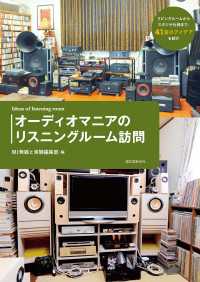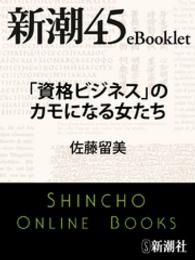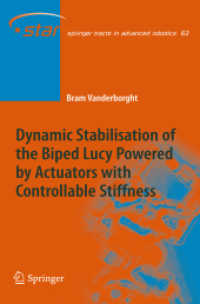- ホーム
- > 洋書
- > ドイツ書
- > Humanities, Arts & Music
- > Religion & Theology
- > christianity
Description
(Text)
In spring 1456, with the help of the Muslim faqih Yça Gidelli, Juan de Segovia accomplished a trilingual Qur'an (Castilian, Arabic, and Latin) he regarded as fundamental to the conversion programme addressed to Muslims, which he conceived after the fall of Byzantium (1453). This book delves into the origins and development of Segovia's programme, from his university lectures to the disputes held with Muslims, from the doctrinal debates at the Council of Basel to his exile at the Aiton monastery in Savoy and the destiny of his books. Segovia deemed the await of miracles, preaching in Islamic lands, and the Crusade promoted by the papacy, to be useless for conversion. On the contrary, he considered proper knowledge of the Qur'an as unavoidable for Christian scholars engaged in confrontation with Islamic doctrine, but also for Muslims, who were supposed to understand Christian doctrine through their own "law".Segovia's proposal is far from echoing modern concerns for religious tolerance or pacifist stances, nor can it be explained in light of the scholarly approach to Islam developed by European Arabists in the second half of the nineteenth century, let alone twentieth-century initiatives prompting "interreligious dialogue". Drawing on Biblical language and Scriptural exegesis, it is rather a result of the practice of debate between Christian and Islamic scholars which Segovia discussed with influential churchmen such as Nicholas of Cusa and Enea Silvio Piccolomini. He believed this programme - called "via pacis et doctrine" - to be the only effective solution to stem wars and persuade Muslims to convert voluntarily to the Christian faith.
(Author portrait)
Davide Scotto works as a postdoctoral researcher at the Department of Asia, Africa and Mediterranean Studies of the University of Naples L'Orientale within the ERC Project "The European Qur'an: Islamic Scripture in European Culture and Religion, 1150-1850" (EuQu). He specializes in the study of Christian interactions with Judaism and Islam in premodern Europe and the Mediterranean. He has studied Church history in Turin (BA), medieval history in Pavia (MA), and philology in Florence (PhD). Between 2013 and 2021, he has worked as a researcher and lecturer at the Center for Islamic Theology of the University of Tübingen, the Department of History of the University of Basel, and the Department of History of the Goethe University Frankfurt am Main. Moreover, he has participated in the ERC Project "Conversion, Overlapping Religiosities, Polemics and Interaction. Early Modern Iberia and Beyond" (CORPI) based at the Spanish National Research Council (CSIC) of Madrid and has been a visiting lecturer at the Department for the Study of Religions of the Masaryk University of Brno. He is an editorial assistant of the Rivista di Storia e Letteratura Religiosa and, in 2019, was among the co-founders of the Centro di Studi Interreligiosi based at the Collegio Borromeo, Pavia.
-

- 電子書籍
- オーディオマニアのリスニングルーム訪問…
-

- 電子書籍
- ワールドサッカーキング2019年 1月号
-

- 電子書籍
- 週刊東洋経済 2015年11月28日号…
-

- 電子書籍
- 「資格ビジネス」のカモになる女たち 新…




